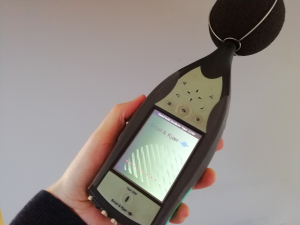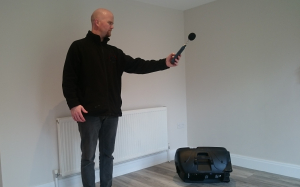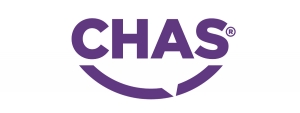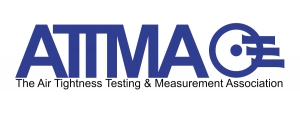Why do you need sound insulation testing?
Approved Document E of the Building Regulations requires party walls between dwelling houses, flats and other ‘rooms for residential purposes’ (e.g. hotels, care homes, student accommodation) to demonstrate a basic level of sound insulation. This applies to new builds and residences formed by material change of use (e.g. conversions of a house or office into flats).
Building contractors can demonstrate compliance by conducting pre-completion acoustic testing of a sample of walls and/or floors on site or by paying licence fees for robust construction details.
What we offer
- UKAS accredited sound testing of dwelling houses and flats
- UKAS accredited sound testing of rooms for residential purposes i.e. hotels, care homes, student accommodation, etc
- Sound testing of schools for Building Bulletin 93 (BB93)
- Sound testing of healthcare buildings for Health Technical Memorandum 08 (HTM-08) i.e. hospitals, surgeries, etc
We also offer acoustic consultancy services through our trusted partners including Noise Impact Assessments and sound insulation design advice. Please let us know if you need any acoustic consultancy support and we will provide a proposal to meet all your requirements.
How it works
- Send us basic details of your project i.e. location, type and size/number of units by emailing info@robusttesting.co.uk or completing our Contact Form
e.g. 2 semi-detached houses in Ashford, 6 flats over 3 floors in Dartford, 100 bedroom hotel in Chelmsford.
If you need the test by a certain date, let us know – - We will send you a price the same day and confirm availability/current lead times.
- If you would like to go ahead, we then send over checklists and further info on the testing and confirm timings, prep, targets, etc
- Our test engineer calls in advance to run through everything.
- On the day of the test, we check the building is ready and use speakers and/or tapping machines to generate noise (up to about 100dB) which is measured in multiple locations using highly accurate sound level meters. An indicative result is available there and then.
- If the result isn’t what is required, we put you in touch with a suitably qualified, independent, acoustic consultant to identify the issue and solutions.
- Test certificates are issued within 1 working day.
- The test certificate can then be sent to the Building Control Officer to tick off their list.
What is sound insulation testing?
Sound insulation testing is carried out on party walls and floors between dwelling houses, flats and rooms for residential purposes (e.g. hotels, care homes, student accommodation, hostels, etc).
For every 10 units, 1 set of tests must be conducted.
- For flats a set includes 2 airborne tests on party walls, 2 airborne tests on party floors and 2 impact tests on party floors.
- For dwelling houses a set is 2 airborne tests on party walls.
- For rooms for residential purposes a set includes 1 airborne test on a party wall, 1 airborne test on a party floor and 1 impact test on a party floor.
The performance requirements are set at a level that should prohibit sounds at a ‘reasonable’ level being heard in a neighbouring unit i.e. you shouldn’t be able to hear conversations and TVs at a normal volume but if someone is having a party or a very loud argument this will still be audible.
Testing on Site
Airborne tests involve creating noise of a known level (approximately 100dB) on one side of the party/separating wall/floor and measuring the volume on the other side to calculate the amount of noise that the wall or floor is insulating. Measurements are taken in multiple planes and positions, reverberation (echo) and background noise are taken into account. The result is expressed in decibels (dB) as DnTw with corrections including traffic noise (Ctr).
Impact testing is done using a tapping machine that simulates footfall on the uncovered floor surface. The level of noise is measured in the unit below and the result is expressed in dB as LnT.
New flats and houses must achieve greater than or equal to 45dB sound insulation for airborne tests and less than or equal to 62dB for impact tests.
Testing typically takes place very close to completion but before carpets or other flooring is laid.
In addition, classrooms in schools and many rooms in healthcare facilities need sound insulation testing based on Building Bulletin 93 (BB93) and Health Technical Memorandum 08 (HTM-08) respectively. They also have requirements for reverberation (echo) and ambient noise levels.
Why use Robust?
- Helpful – we work with you to achieve the best result
- Knowledgeable – all our test engineers have years of experience
- Flexible – we try to fit in with the dates and times you need the test, we try to work around other trades to minimise disruption on site
- Responsive – we issue quotes and certificates within 1 working day, our lead-times are typically around a week but we will try and fit you in sooner if required
- Great value – our prices are very competitive but we can also undertake air and sound testing on the same visit to save you more money. If you do manage to find the testing cheaper, we will beat any quote.




